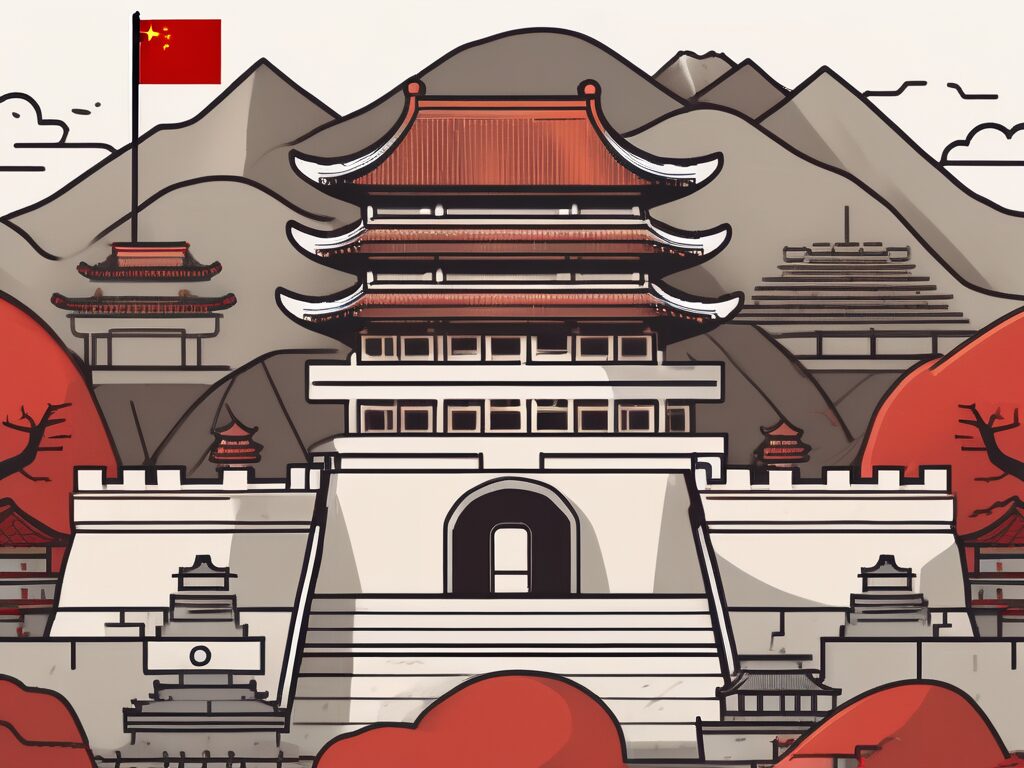Education in China has always been a subject of great interest, not just for the Chinese themselves, but for the global community. The Chinese government’s policies play a crucial role in shaping the educational landscape of the country. This article delves into the various government policies that have had a significant impact on education in China, and how they have influenced the overall educational system.
The Historical Context
Before we dive into the current policies, it’s important to understand the historical context. The Chinese government has always placed a high value on education. In fact, the Imperial examinations, a system for selecting officials based on merit, dates back to the Han dynasty (206 BC–220 AD). This system laid the foundation for the importance of education in Chinese society.
However, the 20th century brought about significant changes. The Cultural Revolution (1966-1976) saw a disruption in education as schools and universities were closed. The focus shifted from academic achievement to revolutionary fervour. This period had a lasting impact on the education system and the government’s approach towards it.
Education Reform Policies
Post the Cultural Revolution, the Chinese government implemented a series of reforms to rebuild the education system. The 1985 reform, for instance, aimed to modernise education, promote science and technology, and foster a new generation of skilled workers.
More recently, the government introduced the ‘New Curriculum Reform’ in 2001. This policy aimed to shift the focus from rote learning to critical thinking and creativity. It also emphasised the importance of moral education and physical education.
The Nine-Year Compulsory Education Law
One of the most significant policies is the Nine-Year Compulsory Education Law introduced in 1986. This law made it mandatory for all children to complete nine years of education, comprising six years of primary school and three years of junior secondary school. This law was a game-changer, as it aimed to eradicate illiteracy among young and middle-aged citizens.
However, implementing this law across a country as vast and diverse as China was no easy task. Despite the challenges, the government has made significant strides in ensuring that children across the country have access to basic education.
The Gaokao System
The Gaokao, or the National Higher Education Entrance Examination, is another policy that has a profound impact on education in China. This highly competitive exam determines whether a student can attend university and which one. The Gaokao system has been both praised for its meritocracy and criticised for its high-stress nature.
Over the years, the government has implemented reforms to the Gaokao system, such as allowing students to take the exam in cities where they attend high school rather than their hometowns. This policy change has been a significant relief for migrant students.
Current Trends and Future Policies
Looking at the current trends, the Chinese government continues to prioritise education. The government’s commitment to education is evident in its budget allocation. In 2020, China spent about 4% of its GDP on education, which is comparable to the spending of many developed countries.
One of the key areas of focus is vocational education. The government aims to develop a modern vocational education system that meets the needs of its economy. The “Double First-Class” initiative is another policy that aims to create world-class universities and disciplines in China.
Internationalisation of Education
The Chinese government is also focusing on the internationalisation of education. Policies have been introduced to attract foreign students to Chinese universities. At the same time, the government encourages Chinese students to study abroad and return to contribute to the country’s development.
However, the recent geopolitical tensions have posed challenges to this policy. The government needs to strike a balance between internationalisation and maintaining its national interests.
Technology in Education
Technology is another area where the government is focusing its policies. The government aims to integrate technology into education to enhance teaching and learning. Policies have been introduced to promote online learning and the use of AI in education.
However, the government is also aware of the potential pitfalls of technology. Recent policies have been introduced to regulate the online tutoring industry and limit the screen time for children.
Conclusion
Government policies have played a pivotal role in shaping the education system in China. From the Nine-Year Compulsory Education Law to the Gaokao system, these policies have had a profound impact on the lives of millions of students.
As China continues to evolve and grow, it will be interesting to see how the government’s policies adapt to meet the changing needs of its education system. One thing is certain – education will continue to be a top priority for the Chinese government.
Elevate Your Teaching Career with IPGCE
As China and the world continue to prioritize education, the demand for qualified educators with a deep understanding of global education systems is on the rise. If you’re an educator looking to overcome the barriers of stringent qualification requirements and limited career progression, IPGCE is your gateway to success. Our International Postgraduate Certificate in Education (iPGCE) is designed to enhance your qualifications, connect you with a global professional community, and provide you with the flexibility to balance work and study. Join the ranks of satisfied educators who have seen a 50% increase in interview callbacks, a 45% boost in promotion rates, and a 30% salary increase. Don’t let isolation or a lack of understanding of international curricula hold you back. Become 65% more adaptable and enrich your professional development with the UK’s #1 Teacher Training Course. Join the IPGCE program today and take the first step towards an impactful and fulfilling career in education.

